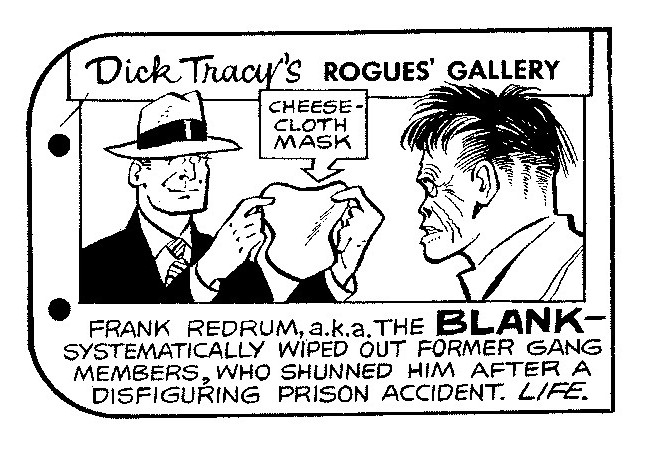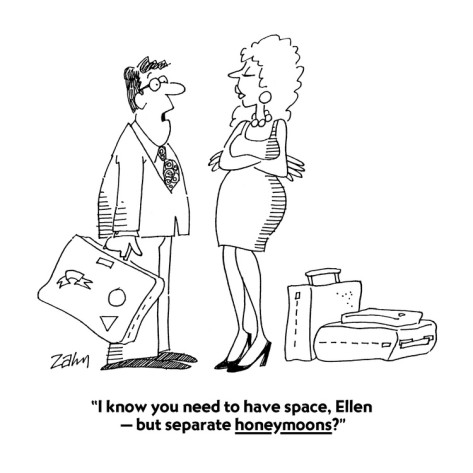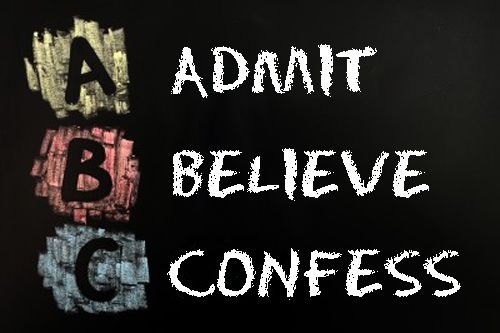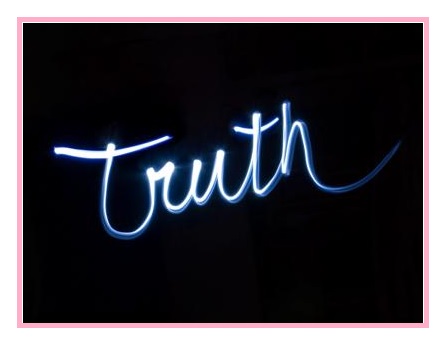As you are likely aware, either from my tweets, our TMI Tuesday posts, or this January blog post, Jill’s and my relationship has taken some hits in the last year and a half or so. We are having trouble connecting, at times emotionally and especially sexually, and she doesn’t seem able to feel joy as she used to.
It’s been like this since October 2016, around the time of Rye’s visit. (I later found out that what I refer to in the linked post as Jill’s “stressful day at work” was actually the onset of severe depression, which I believe is largely to blame for our disconnect.) There have been good days and not-so-good days, days when I have hope and days when I wonder if we’re actually going to survive as a couple. There have been periods of weeks – months, even – wherein we have no sex or intimacy whatsoever, and then there are times when I catch glimpses of my wife as she used to be, such as last Thursday morning when we had sex in a moving elevator.
One thing I definitely can’t say is that the excitement is gone from our marriage. Unfortunately, while the thrills are still plentiful, they are born of uncertainty, of precariousness. They come with an unwelcome dose of trepidation and anxiety. These are not good thrills. This is not the excitement for which I strive. I want the sort of exhilaration one gets when one rides a roller coaster, not the kind of fear one experiences when the brakes fail on an icy mountain road.
Fortunately, my built-in internal optimist is inclined to see these difficulties as just temporary. After all, Jill and I have been happy together for more than a decade. And while it’s true that people change – I know I certainly have – I’d like to think that there is more potentially keeping us together than forcing us apart. I’m not willing to give up, obviously. And I’d like to think my wife isn’t either.
When somebody I care about is experiencing a difficult time, my instinct is to try and fix it, or at the very least reach out to them and ascertain the nature of the issue in the hopes of helping somehow, even in a small way. I understand that this isn’t always what the other person needs, but it’s simply my nature. I find it difficult to rest, or even just exist, when something is amiss in this fashion. Empathy is sometimes more a curse than a blessing.
After Jill came home from work several consecutive weekday afternoons clearly overwhelmed emotionally and napped or otherwise withdrew, I asked her about it. She claimed it was work-related, and I reaffirmed my availability should she care to talk about whatever was bothering her. I assumed that when whatever it was had passed, she’d be back. After all, just a month before, we were the happiest we’d been in ages. Our sexual connection was at an all-time high, as were our intimacy levels. So I let her have the emotional space she needed.
It wasn’t long before I realized it was foolish of me – reckless, even – to have given her this space, though I didn’t see that I had any choice at the time, and I still don’t. She maintained the distance between us, and even allowed it to widen. As I realized that what was happening to my wife looked an awful lot like depression, my own – long dormant almost to the point of being completely gone – returned with a vengeance. It seemed as though my depression was feeding off of hers. Having dealt with it for years, I was used to it, but I didn’t like it one bit, especially since Jill had always been my rock, the person who elevated me and helped me to see the positive. That side of her was essentially gone.
In April 2017, after a couple rebuffed attempts to talk about the distance between us, I forced a conversation. She told me she was essentially done being married to me – albeit in more diplomatic terms – and wanted to separate, if not divorce. I was shocked and hurt; this wasn’t something I ever would have expected to hear, and while I can acknowledge that after almost a decade of marriage I might have grown a bit complacent, I’m not one to take for granted anything I truly value.
Although I reeled from the declaration that she wanted out, she subsequently dialed it back a bit. She was conflicted, for sure, but I don’t believe Jill is any more capable of being a single mother than I am of being a single father. That is not to say that she lacks the strength; she’s probably stronger than I am in that regard. But without support, there’s only so much one person is capable of doing. Raising a child costs money. It takes time. It takes patience. We both rely on each other, much like tag-team wrestlers. When one of us is just done and needs a break, we know the other will be there to pick up the slack.
I don’t believe I’m a bad husband. Trust me, I’m usually so full of doubt and self-loathing that if there was a chance that I might be a bad husband, I wouldn’t have started this paragraph the way I did. So I have analyzed the quality of my husbandry*, moreso since Jill and I have been at this impasse. I have considered that everything that’s happening may be entirely my fault. But I’ve come to the conclusion that it’s not. I give my all to my marriage, just as I give my all to raising my daughter, to my other relationships, and to my friendships.
*Yes, I realize that “husbandry” doesn’t actually refer to the quality of any given husband. Just go with it.
In light of that, the fact that my wife has considered, occasionally or even momentarily, that I’m not the right person for her hurt me: Who in the world could possibly be a better partner than I am? And I realized that it wasn’t even that she wanted another partner; our open relationship allows for that. No, as I interpreted it, she would rather have been alone than married to me. And that shook me to my very core. Despite my reasonably-informed belief that I’m not a bad guy or a bad husband, I began to second-guess myself. I began to doubt that I really was a good person. Or maybe I generally was a good person, but not to my wife. It was certainly possible, if – at least in my mind – unlikely.
The Jill I’ve been living with since fall of 2016 isn’t the same Jill I married. She’s still the center of my world. I still love her, and I still find her wonderful. Still worth living with. Still worth dying for. But she doesn’t feel like the happy woman I dated, the open, expressive woman with whom I had a child, and lived for nearly fifteen years. And I understand why she might have changed, to an extent. She’s older now; her life perhaps hasn’t shaped up as she always thought it would. She married a guy with social anxiety, depression, and a need to sleep with – and love – women who are not her. My wife has questioned and challenged her upbringing and values, and – completely by choice – entered into an open, polyamorous relationship after decades of conforming to traditional notions of love and sex. While our relationship is still open, I suspect this still provides conflict for her.
(Jill has pretty much always known that I am inclined toward non-monogamy. Though it was not one of the first things I told her about myself when we began dating, I didn’t hold it back for very long once our relationship became sexual. And it’s something I mentioned frequently, in a variety of contexts. In other words, it was a consistent if not constant facet of my personality. Though it is, at least in some circles, a surprising or controversial thing, I wasn’t afraid to bring up my desire for openness with Jill because she was and is the most intelligent and mature person I had ever dated; if she couldn’t handle it, there was no hope.)
I need to state for the record that I am not blameless for the tension and lack of connection between Jill and I. After all, I gave her more space than I should have, for longer than I should have. Rather than checking in frequently and attempting serious, in-depth conversations in the hopes of maintaining the connection and getting to the bottom of whatever was troubling her, I met her withdrawal with one of my own. As I stated earlier, I didn’t see much choice: Attempts to pry or otherwise bridge the gap would have caused her to pull back even further. So I kept my distance until I couldn’t stand it any longer.
Although I was quick to assume the blame – perhaps fear that it was all my fault prevented me from making much effort sooner – I did investigate on my own. I researched emotional issues in perimenopausal women. I Googled everything I could think of. I talked to anyone who may have been able to enlighten me. I asked my Twitter followers for help.
It should be noted that one of the possibilities I considered is that Jill was still coping with a personal rejection that had occurred around the time her depression reared its ugly head. My wife dislikes rejection – obviously; does anyone out there thrive on it? – and as a result can be slow to put herself out there, to open herself up to unnecessary risks, and to try again if it doesn’t go well. It’s understandable; I’m the same way at times.
I hesitate to go into detail, because I am certain that if the person I’m about to reference knew the effect his rejection had on her, he’d feel terribly guilty. To make a long story short, after several months of being sexually involved with the man I’ve referred to as H, and hoping for a more significant relationship than just a sexual one, she was told that he would never have the same deep, emotional feelings for her that I have for his wife (and vice versa). To his credit, H was as earnest and careful with her feelings as I suspect any man has ever been during such a conversation. He didn’t reject her out of malice, didn’t treat her cavalierly, didn’t express ridicule or even condescension for her feelings, didn’t ignore her until she got bored and went away. And he certainly didn’t want to stop fucking her. He let her know where she stood, and while it wasn’t what she wanted to hear, short of committing to an emotional relationship he couldn’t handle, I have no idea what else he might have done.
He and Jill are still friendly. They communicate on occasion, if not frequently, and have no problem seeing each other socially when the situation dictates. But they haven’t had sex since October 2016, and I suspect Jill has no intention of changing that anytime soon. Still, despite their détente, I still wondered if what transpired with H was the cause of the tension between Jill and I. Was she lashing out at me because, for fear of damaging relations between our respective families, our children – who are similar in age and enjoy a one-week-out-of-the-year in-person friendship – and most importantly myself and H’s wife, she couldn’t lash out at him? I ran this idea by Jill a few months back, and she considered that may have been the case, but it’s not as though acknowledging the possibility changed anything.
Not long after, my therapist mentioned that the cause of everything – Jill’s depression, the deterioration of our sex life, the emotional disconnect, and literally every change that I’ve noted in the last year and a half was almost certainly due to changing hormones. Now, what I know about women’s bodies could fill a relatively short magazine or a large pamphlet, but I can admit to knowing exactly jack shit about hormones, especially in women my wife’s age. Apparently it’s a common thing in women approaching menopause, and doctors – male doctors especially – rarely make the connection. So one day, out of the blue, I brought it up. But Jill didn’t seem swayed by the new information, and anyway, it didn’t change anything.
Last month, Jill mentioned that the birth control she’d been using wasn’t doing a very good job regulating her periods. My instinct was to suggest she stop taking it and switch to something better; I am aware that there are numerous varieties of oral contraceptive, and most of them contain some ratio of estrogen and progestin. I also know that not every pill is right for every individual. Clearly my wife had been prescribed a pill that had wreaked havoc on her hormone levels. Rather than tell her to switch pills – by now you must know I’d never tell any woman what to do with their body – my brain went a different route. I had to know, so I asked her when she began taking this particular birth control.
She didn’t hesitate before speaking: “October 2016.” It was like I’d been reading a sprawling, richly complex novel and now, in the final or penultimate chapter, all the pieces finally fell into place. I couldn’t believe it!
Well, of course I could believe it. It was beyond obvious. But I was also flummoxed at just how obvious it was. And disappointed that I was the only one who’d made the connection. The only one who’d done any investigation. The only one who cared. I understood the effects of depression; when my own was at its nadir, I was incapable of seeing answers that were right in front of my face, or of hunting for them when they weren’t so obvious. I was upset that my wife hadn’t considered that the issues plaguing her (and plaguing our marriage) were serviceable, and certainly not a fait accompli.
Trying not to show the satisfaction I felt over realizing my wife’s depression was likely not my fault, I suggested she talk to her doctor about prescribing a new pill. She dismissed the idea, and passive-aggressively – almost defeatedly – said she’d just stop taking it. Once again, I know almost nothing about hormones, but I doubted whether it was a good idea to stop taking something that may affect one’s thoughts, mood, or behavior without consulting a doctor, and I told her as much. Still, within a couple days she had ceased taking it, and she seemed okay with that decision. As of right now, she’s not yet replaced it with a new oral contraceptive.
I’ve learned that it could take months for her hormones to return to previous levels. Some of the people with whom I spoke reported at least six weeks. At least one woman said it took her nearly a year. I’ve waited more than a year without any idea as to the cause or how to fix it; another year – with a likely end in sight, or even just hope in my heart – is certainly doable.








